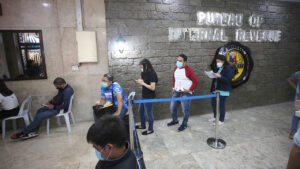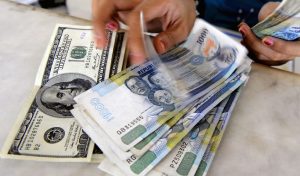Philippine President Ferdinand R. Marcos, Jr. on Thursday pledged to ramp up government spending in the fourth quarter, as a corruption scandal contributed to weaker-than-expected growth in the third quarter.
“We have implemented many measures because public spending will now be increased to make sure that by the end of the year, the spending levels are aligned with our original plan — so we can recover what was lost in the third quarter,” Mr. Marcos said in mixed English and Filipino during a press briefing in Malacañang.
The Department of Budget and Management (DBM) earlier said it has programmed P1.31 trillion for disbursement during the October to December period to boost economic growth.
In the third quarter, Philippine gross domestic product (GDP) growth slowed to a four-year low of 4% from the 5.5% expansion in the second quarter and 5.2% a year ago. The sharp economic slowdown was mainly attributed to the corruption mess that dampened government spending and affected consumer and investor confidence.
For the first nine months of the year, GDP growth averaged 5%, slower than 5.9% in the same period last year, and below the government’s 5.5-6.5% full-year target.
The government is probing a multibillion-peso corruption scandal involving public works projects, where government officials allegedly colluded with private contractors to inflate costs and approve ghost infrastructure.
The scandal has also affected investor confidence on the Philippines, weighing on the stock market and the Philippine peso.
The Philippine peso weakened to a new record low of P59.17 per US dollar on Wednesday.
However, Mr. Marcos said the slowdown in economic activity is also partly due to a string of typhoons that led to work suspensions.
“There really was a downturn in economic activity. You have to remember that it’s not only because of these problems. Because of the typhoons, we lost working days in the economy,” he said.
Mr. Marcos also attributed the slower growth to the trade uncertainties, which are also affecting the global economy.
“We are not the only ones suffering the shocks that come from the new trade structure that has been imposed on the rest of the world. And so, we are all adjusting to that,” he added.
Since Aug. 7, the US has imposed a 19% duty on many goods from the Philippines, Cambodia, Malaysia, Thailand and Indonesia. — Chloe Mari A. Hufana

















